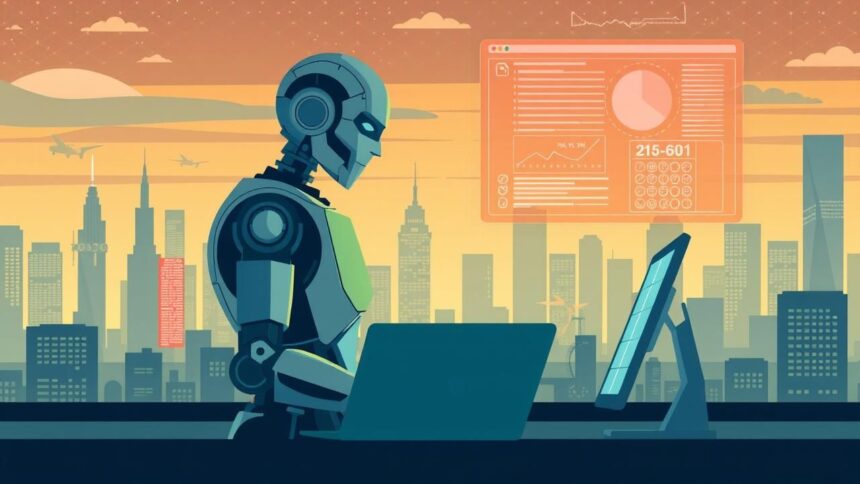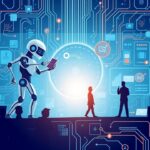Jobs on the Brink: Top Careers Most Likely to be Replaced by AI Automation
The rise of AI automation is undeniable. It’s transforming industries at a breakneck pace, bringing with it a wave of efficiency and innovation. But with these advancements come questions about job security. Which careers are most likely to be replaced by AI? And how can we prepare for this shift? Let’s dive in and explore where AI automation might leave the biggest imprint.
1. Understanding AI Automation
AI automation refers to the use of artificial intelligence to perform tasks that previously required human intervention. From simple repetitive tasks to complex decision-making processes, AI is quickly learning to handle a wide array of responsibilities. But how does it work, and what makes a job susceptible to automation?
1.1 The Mechanisms Behind AI Automation
AI automation relies on machine learning algorithms that can analyze vast amounts of data, identify patterns, and make predictions or decisions. These systems improve over time as they process more information, becoming increasingly adept at their tasks. Think of it like a self-driving car— the more it navigates different roads and conditions, the better it gets at driving safely and efficiently.
1.2 Factors That Make a Job Vulnerable to AI
Certain jobs are more susceptible to AI automation than others. Generally, roles that involve:
- Repetitive tasks
- Data analysis
- Clear, predefined processes
are the ones most at risk. For example, data entry clerks who spend their days inputting numbers into spreadsheets are far more likely to be replaced by AI than a creative writer who crafts engaging blog posts.
2. Top Careers Most Likely to Be Replaced by AI Automation
Now, let’s look at some specific careers that are on the brink of being automated. As AI continues to evolve, these roles may see significant changes or even disappear entirely.
2.1 Customer Service Representatives
Customer service reps are often the front line of a company’s interaction with its customers. They handle inquiries, complaints, and provide solutions. But what happens when a chatbot can do the same job faster and without breaks?
Chatbots and virtual assistants, powered by natural language processing, are rapidly improving. They can understand and respond to customer queries with increasing accuracy, making them a cost-effective solution for many businesses. So, while customer service jobs won’t disappear entirely, they may look very different in the future.
2.2 Retail Salespersons
Retail jobs have already seen a significant impact from e-commerce. Automated checkouts and self-service kiosks are becoming more common, reducing the need for human cashiers. But what about salespersons?
AI-driven recommendation engines can analyze customer data to suggest products tailored to individual preferences. These digital sales assistants can operate 24/7, providing personalized shopping experiences without the need for human interaction. While friendly human contact remains valuable, the role of retail salespersons is likely to shrink as AI takes over more sales functions.
2.3 Taxi Drivers and Chauffeurs
Self-driving cars are no longer just a sci-fi dream. Major tech companies are investing heavily in this technology, and we’re already seeing prototypes on the road. How will this impact taxi drivers and chauffeurs?
Autonomous vehicles can operate without breaks, reducing labor costs for companies. They can also improve road safety by eliminating human error. While the transition won’t happen overnight, it’s clear that taxi drivers and chauffeurs are at risk of being automated out of existence.
2.4 Data Entry Clerks
Data entry clerks spend their days inputting information into computer systems. It’s a highly repetitive and time-consuming job, making it an ideal candidate for AI automation.
AI can process vast amounts of data quickly and accurately. Machines don’t get tired or make errors due to fatigue, making them perfect for data entry tasks. Software solutions that use optical character recognition (OCR) can read text from scanned documents and input it into digital systems, further reducing the need for human clerks.
2.5 Bookkeeping Clerks
Bookkeeping involves maintaining financial records, ensuring accuracy and compliance with regulations. But with the rise of AI automation, this role is also at risk.
Accounting software that uses AI can automate tasks like invoice processing, financial reporting, and even fraud detection. These systems can analyze large datasets to identify trends and anomalies, providing insights that would take humans much longer to uncover. While AI’s learning capabilities are improving rapidly, it won’t replace human accounting professionals entirely. Instead, it will augment their skills, allowing them to focus on higher-value tasks like strategic planning and advisory services.
2.6 Administrative and Office Jobs
Administrative roles often involve managing schedules, coordinating meetings, and handling correspondence. These tasks are prime targets for AI automation.
Virtual assistants and AI-powered scheduling tools can handle many administrative tasks with ease. They can book appointments, send reminders, and manage email communications, freeing up human administrators to focus on more complex responsibilities. The AI’s ability to learn and adapt means it can also improve over time, taking on more tasks as it becomes more proficient.
3. Preparing for an AI-Driven Future
So, what can we do to prepare for a future where AI automation plays an even bigger role?
3.1 Upskilling and Reskilling
One of the best ways to future-proof your career is by continuously learning. Upskilling and reskilling can help you adapt to new technologies and take on roles that require more advanced skills. For example, a data entry clerk might learn data analysis skills to move into a more technical role.
Many companies offer training programs or reimbursements for courses. There are also numerous online platforms that provide courses on AI and related technologies. Investing in your education can pay off big time, keeping you relevant in a rapidly changing job market.
3.2 Fostering Creativity and Critical Thinking
Indeed, the best roles for the future will be those that require human creativity, emotional intelligence, and critical thinking. AI can handle repetitive tasks, but it struggles with innovation and complex problem-solving. Cultivating these skills can make you indispensable in the workplace.
Engage in activities that stimulate your mind, like reading, puzzles, or creative hobbies. These not only keep your brain sharp but also help you develop the soft skills that AI can’t replicate. In a world of AI-driven efficiency, creativity and critical thinking will be your superpowers.
3.3 Embracing Flexibility and Adaptability
The job market is evolving, and so must we. Being open to new roles and industries is crucial. Technologies like AI automation are speeding up changes in the workplace, and those who can adapt quickly will have a significant advantage.
Keep an open mind about your career path. Be willing to take on new responsibilities, learn new skills, and even consider a career change if necessary. Embracing flexibility and adaptability can help you thrive in an AI-dominated job market. Rather than seeing AI as a threat, view it as an opportunity to grow and evolve professionally.
4. Conclusion: The Path Forward
AI automation is here to stay, and it’s transforming the job market in ways we’re only beginning to understand. While some careers are at risk of being replaced by AI, others are emerging that we can’t yet imagine. The key is to stay informed, adaptable, and proactive.
Embrace the change, invest in your skills, and don’t be afraid to pivot when necessary. The future of work might seem uncertain, but one thing is clear: those who can adapt and thrive with AI will have a bright future ahead. After all, it’s not about outsmarting the machines, but working alongside them to create a better, more efficient world for everyone. Keep learning, keep growing, and you’ll be ready to take on whatever challenges the future holds.










